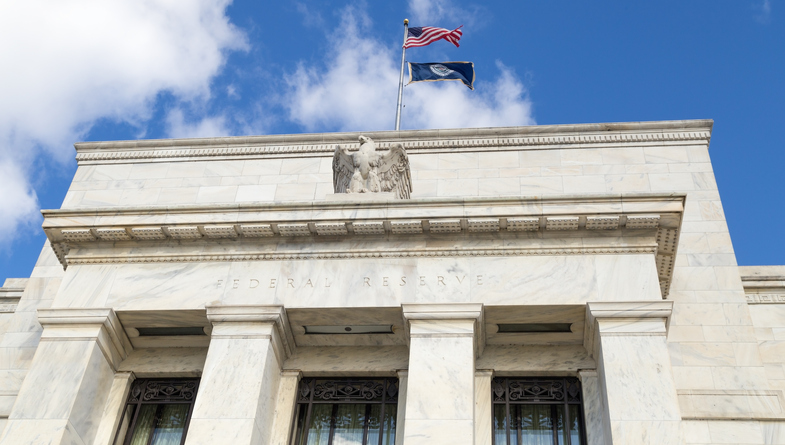The Markets – Again U.S. equities experienced a rough and volatile month in April. The S&P 500 index finished the month slightly positive, inching up 0.30% leaving it at a year-to-date loss of (1.28%). The major benchmarks were flat to modestly lower as investors reacted to the flow of earnings reports. According to T. Rowe Price, with about 42% of the companies in the S&P 500 Index reporting thus far, the small utilities and real estate sectors outperformed within the S&P 500, while the industrials segment performed worst. Stocks suffered most of their declines, driven in part by a drop in industrial giants such as Caterpillar and 3M as both companies cautioned that profits may have reached a “high-water mark for the year.”
Across the pond, European stocks broadly gained as corporate earnings generally met or exceeded expectations and investors welcomed a seemingly dovish monetary policy statement from the European Central Bank (ECB). After the release of about one-third of quarterly European corporate earnings reports, T. Rowe Price traders noted that the market seemed to be interpreting the results positively, although there was substantial dispersion of results within sectors. Investors appeared more willing to shrug off disappointing results from individual companies as sentiment improved toward the end of the week.
Washington – French President Emmanuel Macron visited Washington, D.C., where he displayed a friendly relationship with U.S. President Donald Trump but criticized protectionist trade policies in an address to a joint session of Congress. German Chancellor Angela Merkel met with Trump on Friday in Washington, where the two were also expected to discuss trade policy.
Trade relations between the U.S. and China remained on a low boil as officials from both sides worked behind the scenes to resolve their respective tariff threats. Nevertheless, the threat of an all-out trade war still looms in the background, where the U.S.-China trade spat adds risk to global economic growth.
As the month of April came to a close, overnight President Trump delayed until June tariffs that were set to take effect on May 1 against steel and aluminum imported from the European Union, Mexico and Canada. Agreements to avoid tariffs were in place with Australia, Brazil and Argentina, the White House said. In March, tariffs went into effect against China, Russia and Japan.
The Economy – Another factor on investor’s radar: the Federal Open Market Committee begins its two-day meeting this morning, May 1, in Washington, D.C. The meeting is expected to wrap up with a rate policy decision Wednesday afternoon. Most economists expect the Fed to raise rates 3 times this year but seem mixed about the timing of the rate hikes.
The Fiduciary Rule – In the long, strange tale of the Department of Labor (DOL) fiduciary rule, originally scheduled to be phased in from April 10, 2017 to January 1, 2018, there is yet another installment.
President Trump asked for a review of the fiduciary rule in 2017. On March 15, 2018 The Fifth Circuit Court of Appeals, based in New Orleans, vacated the fiduciary rule in a 2-1 decision, saying it constituted “unreasonableness” and the DOL’s implementation of the rule constitutes “an arbitrary and capricious exercise of administrative power.” The case will like go to the Supreme Court.
The fiduciary rule expanded the “investment advice fiduciary” definition under the Employee Retirement Income Security Act of 1974 (ERISA). Running 1,023 pages in length, it automatically elevated all financial professionals who work with retirement plans or provide retirement planning advice to the level of a fiduciary, bound legally and ethically to meet the standards of that status. While the new rules were likely to have had at least some impact on all financial advisors, it was expected that those who work on commission, such as brokers and insurance agents, would be impacted the most.
Fiduciary is a much higher level of accountability than the suitability standard previously required of financial salespersons, such as brokers, planners and insurance agents, who work with retirement plans and accounts.
Salespersons such as brokers and agents are subject to FINRA’s suitability rule. FINRA’s suitability rule states that firms and their associated persons “must have a reasonable basis to believe” that a transaction or investment strategy involving securities that they recommend is suitable for the customer. Most brokers will commonly refer to the “know your customer rule: The Know Your Customer Rule 2090 essentially states that every broker-dealer should use reasonable effort when opening and maintaining client accounts. It is a requirement to know and keep records on the essential facts of each customer as well as identify each person who has authority to act on the customer’s behalf.
As an Independent Registered Investment Advisor, WCM Wealth LLC. is held to the standard of the Fiduciary Rule and thus must not only insure investments are suitable, but that the investments are in the best interest of the client.
Read more: DOL Fiduciary Rule Explained| Investopedia https://www.investopedia.com/updates/dol-fiduciary-rule/#ixzz5EG945K7K
Have a question? Let me know! Email me at kcompton@wsmtexas.com.

